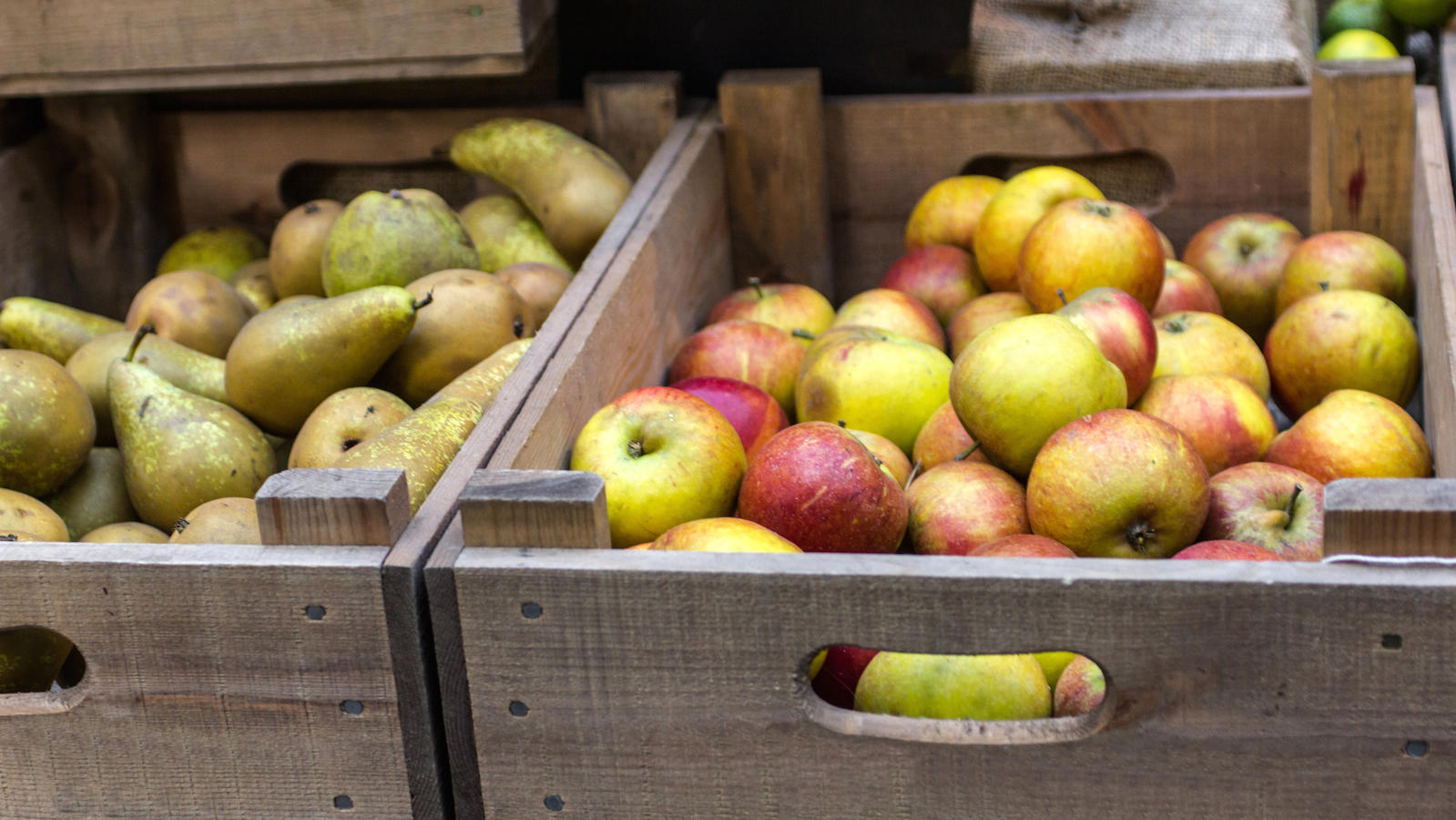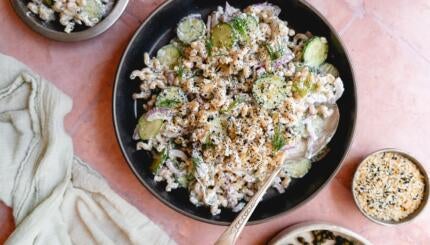Haroset from Italy
An Italian recipe for the mortar of the seder plate.
On the Passover seder plate, haroset symbolizes the mortar used by slaves in Egypt. In Italy there are various regional versions of haroset. The haroset of Padua has prunes, raisins, dates, walnuts, apples, and chestnuts. In Milan they make it with apples, pears, dates, almonds, bananas, and orange juice. The following is a general version.
Reprinted with permission from The Book of Jewish Food: An Odyssey from Samarkand to New York, published by Alfred A. Knopf, Inc.
Ingredients
2 cups sweet wine
1/3 cup (50 g) pine nuts
2/3 cup (100 g) ground almonds
1/2 lb (250 g) dates, pitted and chopped
3/4 cup (100 g) yellow raisins or sultanas
4 oz (100 g) prunes, pitted and chopped
1/2 cup (100 g) sugar or honey, or to taste
1/2 teaspoon ground ginger
1 teaspoon cinnamon
3 apples, sweet or tart
2 pears
Directions
Peel and core the apples and pears and cut them in small pieces. Put all the ingredients into a pan together and cook, stirring occasionally, for about one hour, until the fruits are very soft, adding a little water if it becomes too dry.
seder
Pronounced: SAY-der, Origin: Hebrew, literally "order"; usually used to describe the ceremonial meal and telling of the Passover story on the first two nights of Passover. (In Israel, Jews have a seder only on the first night of Passover.)



